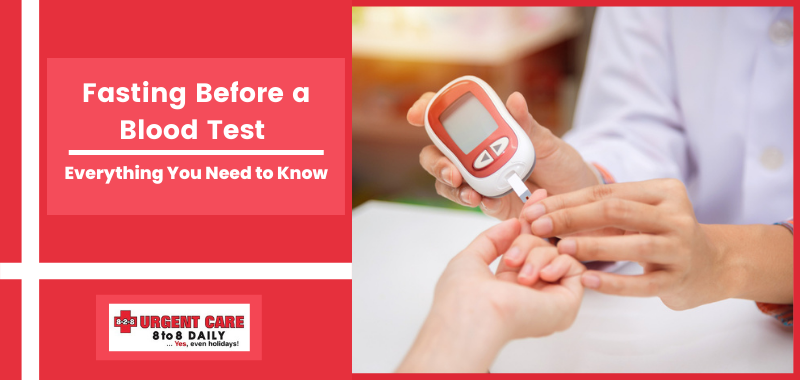


Some blood tests will require a patient to fast beforehand. In these circumstances, your doctor will tell you not to eat or drink anything other than water in the hours before the test.
The prospect of not eating or drinking for even a short period of time may seem overwhelming, but knowing when and how long to fast before a blood test might help alleviate any anxiety.
In this blog, we will explain everything you need to know about fasting before a blood test.
Fasting before some blood tests can help ensure that all your tests come back as accurately as possible. All food and drink besides water have vitamins, minerals, fats, carbs, and proteins, which might affect blood-level readings and affect the results of your test.
The length of time you must fast will vary based on the test. Most tests will instruct you to have just water for the eight hours preceding the test. However, some tests may also require a 12-hour fast.
Not all blood tests will need you to fast beforehand. Fasting is likely required for the following blood tests:
If your doctor has suggested a new blood test for you and does not specify whether or not you should fast or for how long, ask them if fasting is necessary. Some tests, such as a fecal occult blood test, may not need fasting but do restrict specific meals. When preparing for a test, always follow your doctor's instructions.
If you do not fast before a required test, the findings may be inaccurate. This can lead to wrong diagnosis and health concerns.
If you forget and accidentally eat or drink anything, contact your doctor or lab to see if the test may still be performed. They can then notify you if your test has to be rescheduled.
When fasting for a blood test, you should avoid the following things:
Alcohol: Alcohol can influence blood sugar and fat levels, causing blood tests that need fasting to produce erroneous findings.
Before a blood test, speak with your doctor to see if fasting is necessary. If the test requires fasting, consult your doctor about how long you should fast or what specific foods you should avoid. Follow all the instructions from your doctor.
If fasting becomes too difficult and you break the fast due to acute hunger or thirst, you should contact your doctor to reschedule the blood test appointment.
If blood test findings are faulty, you may obtain an incorrect diagnosis. This is why it is critical to follow best practices about fasting before blood testing.
If you need a blood test, you can walk into our urgent care center in Oceanside, CA, and we will be happy to help you. With our on-site on-site lab service, we can test and diagnose most health conditions in minimal time. 8-2-8 Urgent Care doctors will also let you know everything you need to know about fasting before a blood test.